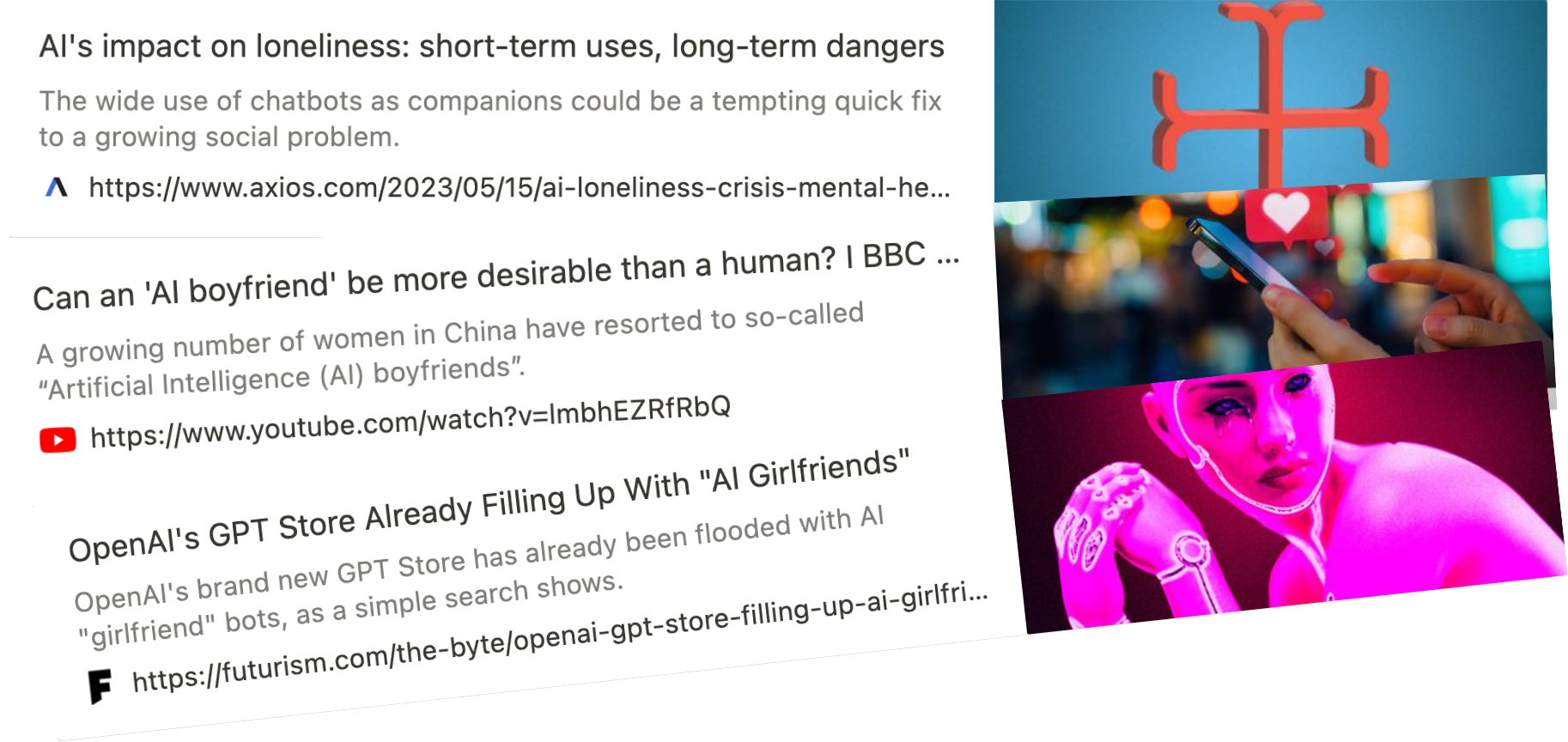Nutrition and Gym for our Social Muscles
First of all, I would like to thank everyone who reacted to my previous post on Humane Tech!
In the past few weeks, I’ve had so many fruitful conversations with people having varied experiences and insights. I learn so much from all of you! There are still more conversations planned and I plan to keep them going. :)
Today, I’m announcing the project I’ve been discussing and working on.
Introducing The Third Thing
There is a growing consensus that small but consistent lifestyle choices, such as exercise and a balanced diet, can prevent a range of health issues. However, tools to prevent mental health problems, by cultivating social well-being are still in their infancy.
I’m kicking off a project called "The Third Thing", whose main aim is to help us cultivate lifestyles for maintaining social and mental well-being in a remote, digital environment we didn’t come prepared for. The dream is to transform the way we use technologies for online communication and organising offline experiences from a distance. Tools including video calls, messaging, social media and AI should help us connect with each other in real life and in online spaces better, not addict us to their platforms. Cultivating a richer social life is crucial to reduce the need for therapy, antidepressants, blood pressure treatment etc. and the burden on health care systems.
The name was inspired by Poet Donald Hall, reflecting the need for reintroducing shared experiences (”third things”) into our remote social interactions, which mostly involve staring at each other’s faces on a screen.
The first landing page is live: https://www.thethirdthing.live/
In the near future, I will be testing out Minimal Viable Products (MVP). If you resonate with the mission and would like to contribute to testing MVPs with your highly valued feedback you can sign up for the waitlist.
If you’d like to join building the tech, business, experimenting or just chatting, please don’t hesitate to reach out to me!
In case you are interested in the problem statement, please read on. :)
Mental Well-being and Prevention
These days, we have a pretty good idea of the basics of keeping ourselves healthier, for longer. Most doctors and nutritionists would agree on the foundations of regular exercise and a balanced diet. Most of us also know how adhering to such a lifestyle can be challenging sometimes. We have rapidly developed an environment, which, while makes us incredibly productive and well off, our bodies haven’t evolved to. Namely, sitting all day and being surrounded by highly processed, sugary food. Of course, this is mostly true for urbanised areas, which, however, grow rapidly. (Today, more than half of the global population lives in urban areas projected to increase to around two-thirds in 2050.)
Disclaimer: Catchy headline alert
In the past decades, however, we have faced further disruption in the ways we live, love and communicate. Never have we experienced global migration and digitalisation to this extent. While for many this provides hope for a better life, and for others unprecedented opportunities and choices, it also messes with our brain which isn’t evolved to this extent of movement and ways of communication.
There is an ongoing mental health and loneliness crisis, linked to digitalisation and social media in particular. What is worrying to me is that the majority of the offered solutions focus on symptom treatment, leading to an increased need for therapy and psychiatric drugs. There is a separate crisis of over-subscription of pills including antidepressants, and a booming online therapy industry. While medication can be necessary in cases when help is urgent, I keep asking the question:
Similarly to healthy eating and exercise, should’t we spend more effort on the prevention of mental health problems, instead of running after growing symtoms while introducing medically induced ones and overwhelming our healthcare systems?
Social Media, AI and Mental Health
Disclaimer: Catchy headline alert
After almost 20 years, now we have longitudinal studies which show causality between social media use and mental health issues (mostly among the youth) [1, 2]. There is further ongoing research on what these giant digital town squares do to our brains and social cohesion.
"Social media divides us, makes us more extreme and less empathetic, it riles us up or sucks us into doom scrolling, making us stressed and depressed. It feels like we need to touch grass and escape to the real world."
[Kurzgesagt - Why we hate each other on the internet]
Just as we could get started grappling with what the Social Media era has been doing to our psychosocial health, we have a new disruptive player in town: publicly available AI.
It’s hard to keep up with the ever-upcoming applications, but we can safely say, that AI has now visibly infiltrated our lives. (Although, it has been doing so for years, only from behind the curtains for most people.) The surge of AI companions, girlfriends, boyfriends, therapists etc., introduces yet unseen consequences to our mental health and social relationships.
Feedback and Contribution
I’m taking the first baby steps towards providing a healthier alternative on the market.
As always, I welcome any thoughts, advice and contribution. If you’d like to join building the tech, business, experimenting or just chatting, please don’t hesitate to reach out to me!
Please comment and like under the original post on Linkedin.



